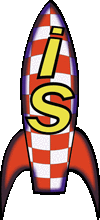
|

|
I |
| S | ||
| D | ||
| A | ||
| T |
- Isdat home
- Tour
- Using
- About
- Status
- Download
- Dataset modules
- Clients
- Reference manuals
- Developer
- History
Page maintained by
Reine Gill

This is the README file for the
ISDAT core/kernel version 2.6, released
on May 23, 1999. This file contains:
- installation notes,
- release notes,
- contact information,
to be found below. All ISDAT/WEC module specific
information is contained in the README-WEC
files. Information on different ISDAT issues
can be found in the "doc" directory in the ISDAT
installation root. For more general information on
the ISDAT system see "http://www.irfu.se/isdat".
====================================
Installation Notes for ISDAT v2.6
===================================
ISDAT v2.6 can be downloaded by ftp.
Its URL is ftp://ftp.irfu.se/isdat/isdat_2.6.tar.gz
To build and install ISDAT please follow these steps:
1) Unzip and untar the "isdat_2.6.tar.gz" file in
the directory you wish the ISDAT installation
to reside.
2) cd into the isdat_2.6 directory.
3) Edit the script "setupMyIsdat" so that
the environment variables it contains
reflect the details of your ISDAT
installation.
4) Run/source the "setupMyIsdat" script by typing
". setupMyIsdat" in the posix/bourne shell.
This way the environment variables needed
by ISDAT will be set within your current
shell. Most important is that the "ISDAT_HOME"
environment variable gets set to the location
of your isdat installation.
5) cd to $ISDAT_HOME/config/cf and edit the
"site.def" file to reflect the resources of
the host the ISDAT installation will be
build on. Look through the macro variables
in this file and this only and change "NO"
to "YES" if you should have that particular
resource on your host. Typical things to
configure are if the host has cdf, matlab,
gcc etc.
6) cd to $ISDAT_HOME
7) Type "make isdat" at the shell prompt.
Nominally, this is all that need to be done! All exectuables
are located in $ISDAT_HOME/bin. You may want to created links
to these binaries so that they become accessable on a system
wide basis.
If your installation does not build please go back check
that the ISDAT_HOME variable and the
$ISDAT_HOME/config/cf/site.def file is set correctly.
copy $ISDAT_HOME/Makefile.ini to $ISDAT_HOME/Makefile
and repeat the installation procedure from step 6 above.
If all else fails or if something in the installation process
is unclear please contact tc@irfu.se by e-mail.
ISDAT v2.6 should build without major modifications on
all systems supported by itools v6.3. Empirically verified
builds on:
- Sun sparc/i386 solaris v2.5-2.7 using gcc
or SUNWspro cc,
- HP-UX 10.20. (HP-UX 11.0 will work if one
sets IMAKECPP=/usr/ccs/lbin/cpp and
BOOTSTRAPCFLAGS="-Dhpux")
- Linux/redhat 5.2 with lesstif 0.88
==================================
Release notes for ISDAT v2.6
==================================
Background:
----------
The current release addresses the need to syncronize
the source code versions and modifications distributed
throughout the WEC community after the long hibernation
period since the Cluster I disaster. Therefore not
much has been altered. However, since many WEC members
have since the last ISDAT release matrually upgraded
their OS, it is necessary to incorparate these changes.
Futhermore, many bug reports have surfaced since the
last v2.5 release.
Changes since v2.5
------------------
* The imake part of ISDAT has been replaced with the
latest itools (which inlcudes the imake source code
and also the imake rules and template files) version,
namely 6.3. The original philosofy of the imake
configuration files is now enforced. In practice, this
means that site specific resources specifications
should be placed in the $ISDAT_HOME/config/cf/site.def
and ONLY here. In previous ISDAT versions there existed
files such as "sitesun.cf", "sitehp.cf", these are
no longer used.
* The environment variable "ISDAT" is no longer
used in ISDAT code. For compatibility the variable
"ISDAT" has been mapped to "ISDAT_HOME" which in
future releases will the only variable to denote
the location of the ISDAT installation. Previously,
both ISDAT and ISDAT_HOME were used for this purpose
which was confusing and unnecessary, besides that the
variable name "ISDAT" was not particularly revealing.
* The "init.ctm" file in the users home directory
is no longer read by the time manager "ctm" by default
during startup. The forced default loading of "init.ctm"
caused alot of troubles on many systems. Instead,
the user may now optionally choose to open a previously
saved *.ctm configuration file. The ctm still automatically
saves its final state in the "init.ctm" file.
* Imake rules for Xdesigner source code are installed only
if one specifies that one has/wants Xdesigner.
Bug fixes
---------
* Numerous matlab fixes. The ISDAT cmex files are still not
compatible with Matlab version 5, but can still be compiled
by cmex using version 4 compatibility mode.
* The Sun "sunmath" library dependency has been worked around,
since it is not anticipated all users will have this library.
* In igr, a variable named "inline" was renamed "inLine", since
the gcc used inline as a reserved word and got confused.
* Conflicting declarations between ISDATs sys_errlist
variable and the declaration in linux "stdio.h" header was
resoleved with some preprocessor directives.
* Numerous bug fixed which resulted from upgrading the
ISDAT imake components. These are mainly to be found in the
ISDAT specific project files: $ISDAT_HOME/config/cf/Isdat.*.
Only minor changes were made to the files taken from the
imake distribution, which is as it should be.
* Myriads of small, for the most part, unnoticable bugs.
Acknowledgement:
----------------
Thanks to all ISDAT/WEC users who
helped with bug reports, source code
contributions, advice and suggestions.
It is your contributions which to put
back momentum to ISDAT/WEC developement
which it so desperately needed after
the Cluster I disaster.
=============================
Contact Information
=============================
Please send bug reports, successful build reports on
systems not mentioned here or any inquires related to
the ISDAT system to "tc@irfu.se". All feed-back is
kindly appreciated, thank you :-)
---------------------------------
Date: 990522
Author: Tobia Carozzi, tc@irfu.se